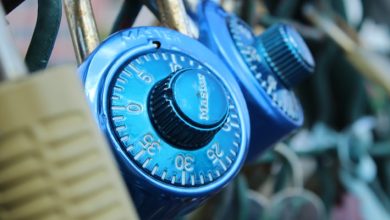Why Private Key Security Is Crucial for NFT Ownership

- Why Private Keys are the Foundation of NFT Ownership Security
- The Risks of Inadequate Private Key Protection in the NFT Space
- Best Practices for Safeguarding Your Private Key in the NFT Ecosystem
- The Importance of Understanding Private Key Management for NFT Investors
- How Secure Private Keys Can Prevent Unauthorized Access to NFT Assets
- Common Mistakes to Avoid When Handling Private Keys for NFTs
Why Private Keys are the Foundation of NFT Ownership Security
Private keys serve as the fundamental building blocks of security when it comes to owning non-fungible tokens (NFTs). These unique cryptographic keys are essential for proving ownership and enabling secure transactions on blockchain networks. Without a private key, NFT owners would not be able to access, transfer, or manage their digital assets.
Private keys are generated using complex algorithms and are meant to be kept confidential at all times. They are essentially the digital equivalent of a physical key that unlocks a vault containing valuable assets. As such, safeguarding your private key is crucial to maintaining ownership and control over your NFTs.
When you own an NFT, you are essentially holding a digital certificate of ownership that is tied to your private key. This key is what allows you to prove your ownership of the NFT and execute any actions related to it. If someone else gains access to your private key, they could potentially transfer or steal your NFT without your consent.
As the popularity of NFTs continues to rise, the importance of private key security cannot be overstated. It is essential for NFT owners to take all necessary precautions to protect their private keys from unauthorized access, such as using hardware wallets or secure storage solutions. By prioritizing private key security, NFT owners can ensure that their digital assets remain safe and under their exclusive control.
The Risks of Inadequate Private Key Protection in the NFT Space
Failure to adequately protect your private key in the NFT space can lead to serious risks and consequences. When your private key is not securely stored, it becomes vulnerable to theft and unauthorized access by malicious actors. This can result in the loss of your valuable NFT assets and potential financial losses.
Additionally, inadequate private key protection can also lead to the compromise of your personal information and data. Cybercriminals can use this information for identity theft, fraud, and other malicious activities. This can have far-reaching implications beyond just the loss of your NFT assets.
Moreover, if your private key is compromised, it can be nearly impossible to recover your stolen NFT assets. The decentralized and irreversible nature of blockchain technology means that once your NFTs are transferred out of your control, there is little recourse for recovery. This can be a devastating blow to NFT owners who have invested significant time and money into building their digital art collections.
Best Practices for Safeguarding Your Private Key in the NFT Ecosystem
When it comes to safeguarding your private key in the NFT ecosystem, there are several best practices you should follow to ensure the security of your digital assets.
- Use a hardware wallet: Storing your private key offline on a hardware wallet is one of the most secure ways to protect it from hackers and unauthorized access.
- Enable two-factor authentication: Adding an extra layer of security by enabling two-factor authentication can help prevent unauthorized access to your private key.
- Avoid sharing your private key: Never share your private key with anyone, as this could compromise the security of your NFT ownership.
- Backup your private key: Make sure to create backups of your private key and store them in secure locations to prevent loss due to hardware failure or other unforeseen events.
- Regularly update your security measures: Stay up to date with the latest security practices and technology to ensure that your private key remains secure in the ever-evolving NFT ecosystem.
By following these best practices for safeguarding your private key, you can help protect your NFT ownership and ensure that your digital assets remain secure.
The Importance of Understanding Private Key Management for NFT Investors
NFT investors should understand the significance of private key management to safeguard their digital assets effectively. Private keys play a crucial role in verifying ownership and facilitating transactions on blockchain networks. Without proper management of private keys, investors risk losing access to their NFTs permanently.
It is essential for NFT investors to store their private keys securely to prevent unauthorized access. Utilizing hardware wallets or encrypted storage solutions can enhance the security of private keys and reduce the risk of theft or hacking. By taking proactive measures to protect their private keys, investors can ensure the safety of their NFT holdings.
Furthermore, understanding the implications of private key loss is vital for NFT investors. In the event of losing a private key, investors may lose access to their NFTs forever, rendering them unable to transfer or sell their digital assets. This highlights the importance of implementing robust private key management practices to mitigate the risk of key loss.
How Secure Private Keys Can Prevent Unauthorized Access to NFT Assets
Ensuring the security of private keys is paramount when it comes to protecting your NFT assets from unauthorized access. Private keys serve as the digital signature that allows you to prove ownership and transfer ownership of your NFTs. If someone gains access to your private key, they can easily take control of your assets without your consent.
By keeping your private key secure, you can prevent unauthorized access and protect your valuable NFTs from theft or fraud. It is essential to store your private key in a safe and secure location, such as a hardware wallet or encrypted USB drive. Avoid sharing your private key with anyone and be cautious of phishing attempts or malware that could compromise your key.
Using strong passwords and two-factor authentication can add an extra layer of security to your private key and further safeguard your NFT assets. Regularly updating your security measures and staying informed about the latest security threats can help you stay one step ahead of potential attackers.
Common Mistakes to Avoid When Handling Private Keys for NFTs
When it comes to handling private keys for NFTs, there are several common mistakes that you should avoid to ensure the security of your digital assets. One of the most frequent errors is storing your private key in an insecure location, such as on a public computer or in an email. It is crucial to keep your private key safe and secure, as it is essentially the key to your digital wallet.
Another mistake to avoid is sharing your private key with anyone else. Your private key should be kept confidential at all times, and you should never disclose it to anyone, including friends or family members. Sharing your private key can lead to unauthorized access to your NFTs and potential loss of ownership.
Furthermore, it is essential to be cautious when entering your private key on websites or platforms. Make sure you are on a secure and trustworthy site before inputting your private key, as entering it on a malicious site can result in theft of your NFTs. Always double-check the URL and ensure that the website is legitimate.



